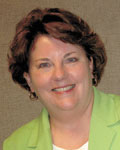February 26, 2013
Education is the Best Weapon Against Abuse
 By Rondi Doyle
By Rondi Doyle
Director of Community Relations
Child Abuse Council
Education is the best weapon against problems in today’s society. Knowledge provides resources, answers and who to seek when problems occur. For children, this knowledge is gained in schools, but also, through those who make strong impacts on their lives. Therefore, many voices need to teach children to be safe and healthy.
One topic, however, is often overlooked when it comes to teaching children health and safety. Approximately 241,000 children are abused, either sexually or physically, in the United States yearly and yet, it is not mandated that abuse awareness be taught in schools. Furthermore, the taboo placed upon the subject is so strong that parents and caregivers are often too uncomfortable to talk about it in their homes.
However, education is the key to stopping abuse early and helping children to protect themselves from abusive situations. Erin Merryn, a sexual abuse survivor, has been working with legislators across the country to break the cycle of silence surrounding sexual abuse. Merryn was sexually abused by her cousin for two years, but didn’t tell anyone until her sister was put in danger. Therefore, Merryn is working today to equip children with the tools necessary to speak out and seek help early if they are being abused.
Children need to know that their physical safety is important and abuse can come in many forms. There is a social responsibility to educate children about the dangers of sexual and physical abuse and what to do if they have been endangered. This can be done within schools, as mandated in Merryn’s namesake legislation, Erin’s Law, but it can also be done at home through caregivers and parents.
The NYU Child Study Center suggests that conversations about child abuse are necessary and help prevent abuse and help those being injured. The best ways to talk to a child about abuse according to the NYC Child Study Center are to:
• Start a general conversation: Tell children you are concerned for their safety and like other dangers such as fire or stranger danger, touching can also be dangerous.
• Ask open ended questions: Questions like, “have you ever been touched in a way that made you feel uncomfortable? Tell me about that.” These questions let the child lead the discussion.
• Be calm and emphasize acceptance: Make sure your child knows that their experience will not change your love for them, and it is ok to tell you if something bad happens.
• Emphasize safety: Ask your child to reflect on other people they can trust and make them feel safe. Express that they can also talk to theses people about their fears.
• Reassure your child: Let your child know that they are never at fault if a sexual or physical assault happens to them.
Other than educating your child about sexual and physical abuse, educate yourself. Make sure that everyone in your family understands the signs of abuse and knows who to contact in case of disclosure from a child. Know that by being prepared and open with your children will help you all to be able to speak out against offenders and help others get the help they need.
For more information about the Child Abuse Council’s prevention, education and treatment programs, visit us at www.childabuseqc.org.
Filed Under: Family, Health & Wellness
Tags: Abuse Awareness, Abusive Situations, Best Weapon, Caregivers, Child Abuse Council, Children Health, Community Relations, Health And Safety, Helping Children, Legislators, Many Voices, Namesake, Nyu, Physical Abuse, Physical Safety, Sexual Abuse Survivor, Social Responsibility, Society Knowledge, Taboo, Teaching Children
Trackback URL: https://www.50pluslife.com/2013/02/26/education-is-the-best-weapon-against-abuse/trackback/


